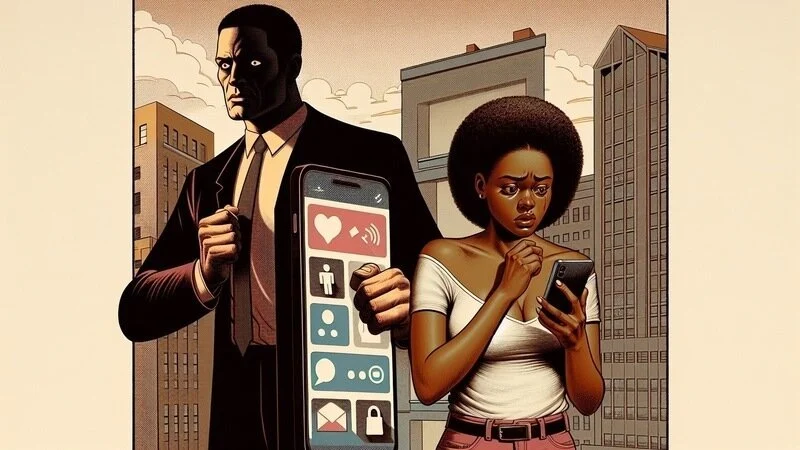Domestic Abuse & Stalking
Domestic Abuse & Stalking
Take Seriously, as slow motion manslaughter
Take Seriously, as slow motion manslaughter
- A minimum jail sentence for people convicted of breaking restraining orders.
- Proper monitoring of people with restraining orders including via electronic tagging.
- Instead of being convicted of Actual Bodily Harm assault (ABH) (or any other offence that doesn’t reference the specific nature of the crime), the Domestic Abuse (Aggravated Offences) Bill will propose that a domestic abuser should be convicted of domestically aggravated ABH. This is much the same as how we treat racially and religiously aggravated offences in England and Wales.
Background
A research paper from The House of Commons library to explore whether a such a solution could be applied to domestic abuse crimes. That paper, published in November 2024, concluded that “in order for that context [of domestically abusive behaviour] to affect the operation of early release, a new category of domestic abuse aggravated offences would need to be created and added to the list of offences excluded from early release.”
- With this new clarity, domestic abusers could be properly excluded from early release schemes and the safety of survivors of domestic abuse could be better protected.
- Look for best practice worldwide for law better able to prevent domestic abuse, without needing victim to make formal complaint (Police gather evidence) and how to prevent Stalking, that can lead, sadly, all too often, to murder of the victim.
- Look into if best to temporarily take the abuser to police cells, to give time for the wife and children to escape to a Refuge?
- Fully fund National domestic abuse Refuges.
- Make mandatory, in-depth lessons about domestic abuse and coercive control
in 6th forms and 16-19 age group academies. PETITION
- Background
- At moment only generic lessons given to children younger than 16, less likely to be in relationships / live in partnerships.
- Obviously with lockdown, victims (mostly women) were locked in with their abuser and we saw:
- In 2021, England and Wales saw
6 per cent increase of
domestic abuse crimes recorded by Police - from 798,607 to 845,734. - In 2020, 24,856 offences of coercive control
recorded by police in England and Wales.
- Women's Aid, whose campaign worked to make coercive control
a criminal act, gives examples, such as:
How do you know if coercive control is happening to you? - Isolating you from friends and family
- Depriving you of basic needs, such as food
- Monitoring your time
- Monitoring you via online communication tools or spyware
- Taking control over aspects of your everyday life, such as
- where you can go,
- who you can see,
- what you can wear and
- when you can sleep
- Depriving you access to support services, such as medical services
- Repeatedly putting you down, such as saying you’re worthless
- Humiliating, degrading or dehumanising you
- Controlling your finances
- Making threats or intimidating you
END FAMILY COURTS
From a petition
about Family Courts
Victim lady informs she was...a survivor of domestic abuse, currently going through the family courts.
Going through a family court process is complicated and painful, though for survivors of domestic abuse, it can be deadly - a recent BBC report shows the number of women who have committed suicide after family court judgements, which have left their children in the care of their abusers, some of whom were convicted paedophiles.
Victim's experiences of domestic violence at the hands of her ex-husband have left her with complex post traumatic stress disorder and suicidal thoughts. Her mental health issues have worsened while going through the family court system - where she wasn’t believed,
was re-traumatised and the full risk of her
ex partner to her family was not understood.
was re-traumatised and the full risk of her
ex partner to her family was not understood.
Neither judges nor barristers have training on the realities of domestic abuse, and abusers rely on flawed psychiatric concepts like “parental alienation” to get what they want.
Parental alienation, the idea that the mother is turning her children against their father through abuse allegations is being used across the country in family courts and is leading to children ending up in the care of abusers instead of their mothers.
The United Nations, as well as leading figures in the UK legal sector have already called for an end to the use of the parental alienation defence in court.
Training on domestic abuse - its dynamics, behaviours and effects would give the judiciary the background they need to make the compassionate, well-informed decisions which survivors desperately need, so that us and our children aren’t subjected to further harm.
Understanding the risk that abusers pose, the tactics they use and the consequences of their behaviour can be the difference between life and death for survivors, and the difference between a child being abused or not.
END TECH STALKING
Effective protection of known victims from the evolving peril of tech-abuse and
post-separation stalking.
post-separation stalking.
- Comprehensive review and re-assessment of the legal frameworks concerning domestic abuse, specifically targeting the rampant misuse of social media by abusers to isolate, harass, and engage in post-separation stalking.
- This includes the proposition to remove the three-month repeated incident limitation in cases of historical abuse, particularly when there is a documented pattern of violent behaviour between the victim and the perpetrator.
From Petition
Background from victim
Tech abuse is when someone uses technology to control, harass, or invade someone else’s life. It’s not solely about the big, obvious stuff like hacking or spying - it can also be subtle, like constantly checking someone’s location.
For example, an abuser might install a hidden app on their partner’s phone to track their every move or use their social media accounts to watch what they’re doing, even after a breakup.
It is about control and power. The abuser uses technology to make the other person feel like they can’t escape or have any privacy, even when they’re apart. It’s an extension of traditional abuse, but it can feel even more invasive because tech is such a big part of our lives.
What’s needed is legislation and enforcement that directly targets tech abuse itself so that the focus is on stopping the abuser, not silencing the victim.




